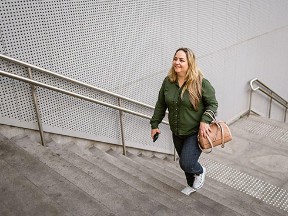Once the vaccines are approved, we expect to receive more doses every week, so the number of people who can get the vaccine will increase exponentially.
"We want to achieve herd immunity the right way through vaccination, but we’re unlikely to get that anytime soon," said Dr. Paul Klotman, nephrologist and internal medicine specialist at Baylor St. Luke’s Medical Center and president and CEO of Baylor College of Medicine. "In the meantime, we should be focused on the public health measures that we know are working, which include physically distancing, avoiding large social gatherings, and wearing masks."
Why should I get the COVID-19 vaccine?
Even if you’re young and healthy, there is no telling how COVID-19 may affect you. Vaccinations can also reduce the spread of the virus.
"Mass vaccinations will really be what breaks this epidemic," said Dr. Charles Sims, medical director for infectious disease in the northern market of St. Luke’s Health and the chief infectious disease expert for Montgomery County. "If we isolate ourselves as well as we can, there’s still going to be some low-level spread in the community, and as we go back to more of a normal lifestyle, we can start seeing spread of the virus or even recurrence of the epidemic because we’ll still have a limited amount of immunity."
Where can I get the COVID-19 vaccine in Houston and surrounding counties?
After reading all of the benefits that can come from getting vaccinated, you may be searching for a “COVID-19 vaccine near me.” Initially, a limited number of provider sites will be available to administer the vaccine. Check with your physician’s office for more information about provider sites near you.
Our team is closely following the progress of vaccine development for COVID-19. We are preparing to receive and distribute vaccines as they become available. Vaccine distribution plans will be determined by the FDA, CDC, and state and local health departments – including how and when St. Luke’s Health facilities will receive vaccines, how many doses will be available, and who should receive the first doses. Our expectation is that the vaccine will be distributed in phases, beginning with a limited number of doses in December 2020. Vaccines may be more widely available by spring or summer 2021.
How many rounds of the COVID-19 vaccine will I need?
The number of inoculations a person needs for the vaccine to be as effective as possible depends on the manufacturer. One of the vaccines in phase 3 requires only one injection, while all of the others require two.
Some vaccines require two inoculations over a period of time because the combination can create a stronger immune response in the recipient. The first round gives a small dose that your immune system can become familiar with, and the second one delivers a little more of the virus to train your immune system fully.
Do I have to wear a mask after getting the COVID-19 vaccine?
Vaccines are just one tool in our toolkit to prevent the spread of COVID-19. It is important that we continue to follow CDC guidelines for the pandemic, including wearing a mask and practicing social distancing after getting one or both doses of the COVID-19 vaccine. Please remember to wash your hands regularly, always wear face coverings in public, and follow social distancing guidelines and government quarantine directives in your area. Getting vaccinated is one of many steps you can take to protect yourself and others from COVID-19. Protection from COVID-19 is critically important because, for some people, it can cause severe illness or death.
As COVID-19 continues to spread, pay attention to your health and self-isolate if you have symptoms. If you have additional questions about COVID-19, schedule an in-person or virtual visit with your Baylor St. Luke’s Medical Group primary care physician.
Sources:
CDC | Frequently Asked Questions about COVID-19 Vaccination CDC | How CDC Is Making COVID-19 Vaccine Recommendations CDC | Different COVID-19 Vaccines




